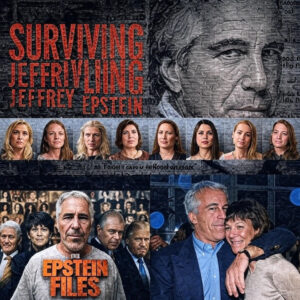Privilege foundations? Watch them crumble frame by frame.
Netflix doesn’t just adapt Giuffre’s memoir—it weaponizes it. What began as a survivor’s testament now detonates across screens as a cinematic reckoning. Each shot hums with suppressed history; each confession slices through the gauze of decorum that once swaddled billionaires and blue bloods alike.

The camera lingers on silence—the kind bought, signed, and sealed in NDAs—and turns it into spectacle. The lens refuses to flinch where courts once did. Through its unrelenting gaze, the series dissolves the illusion of untouchable privilege, revealing the rot beneath manicured estates and diplomatic smiles.
Giuffre’s words, once confined to court filings, now echo through the global consciousness. The film’s rhythm beats like a gavel: testimony as art, exposure as vengeance. Netflix doesn’t merely tell her story—it broadcasts accountability, transforming memoir into movement, and survivor into symbol.
This isn’t adaptation; it’s excavation.
Every frame chips away at marble façades until the truth stands naked beneath. The era of whispered complicity is ending—not with scandal, but with cinema.
Leave a Reply